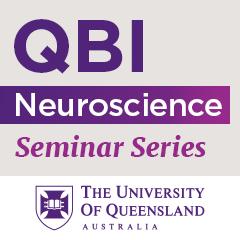A/Professor Mathew Blurton-Jones, UCI : "Using Human iPSC-derived Microglia and Chimeric Mouse Models to Study Alzheimer’s Disease"
Speaker:
A/Professor Mathew Blurton-Jones
Neurobiology and Behaviour, School of Biological Sciences,
University of California, Irvine
Title: "Using Human iPSC-derived Microglia and Chimeric Mouse Models to Study Alzheimer’s Disease"
Abstract: Microglia are strongly implicated in both the genetics and pathogenesis of Alzheimer’s Disease (AD). Yet, studies of human microglia have been hindered by the difficulty in obtaining these cells and the need to examine them either in vitro or within post-mortem specimens. This problem has been further highlighted by recent studies demonstrating that isolated human microglia undergo rapid transcriptional changes with in vitro culture. Thus, there is pressing need to develop new approaches to directly observe and examine human microglial function in vivo. To address this need, we hypothesized that transplantation of human iPSC-derived hematopoietic progenitor cells (HPCs) into the early postnatal brain of immune-deficient mice would result in differentiation of functional microglia that more accurately recapitulate in vivo human microglia biology. iPSC-derived HPCs were transplanted into P1 immunodeficient MITRG mice that express humanized versions of key cytokines that facilitate long-term survival and differentiation of human myeloid cells. Transplanted mice were aged for 2-6 months and then exposed to either intrinsic or extrinsic insults including peripheral LPS, laser cell ablation, or transgenic-mediated production of beta-amyloid plaques. Brains were then collected for analysis by immunohistochemistry and recovery of human microglia by FACs sorting. Robust engraftment of human cells that morphologically closely resemble microglia was observed throughout the brain and these cells stained for multiple microglia markers including P2RY12, Iba1, CD11b, Pu.1, and TMEM119. Furthermore, exposure to insults resulted in human microglial activation, proliferation, and/or migration to injury sites and pathology. In addition RNA sequencing of FACS-sorted human microglia recovered from the mouse brain revealed numerous changes in the microglial transcriptome in response to LPS and the adoption of a human ‘in vivo-like’ transcriptional profile following transplantation. Both histological and functional analyses show that transplantation of human HPCs into the early postnatal mouse brain results in robust engraftment of microglia which actively monitor the CNS and rapidly respond to insults or injury. Taken together these data suggest that this model can be used to advance our understanding of human microglial biology in the context of normal brain development, aging, and disease.
About Neuroscience Seminars
Neuroscience seminars at the QBI play a major role in the advancement of neuroscience in the Asia-Pacific region. The primary goal of these seminars is to promote excellence in neuroscience through the exchange of ideas, establishing new collaborations and augmenting partnerships already in place.
Seminars in the QBI Auditorium on Level 7 are held on Wednesdays at 12-1pm, which are sometimes simulcast on Zoom (with approval from the speaker). We also occassionally hold seminars from international speakers via Zoom. The days and times of these seminars will vary depending on the time zone of the speaker. Please see each seminar listed below for details.




